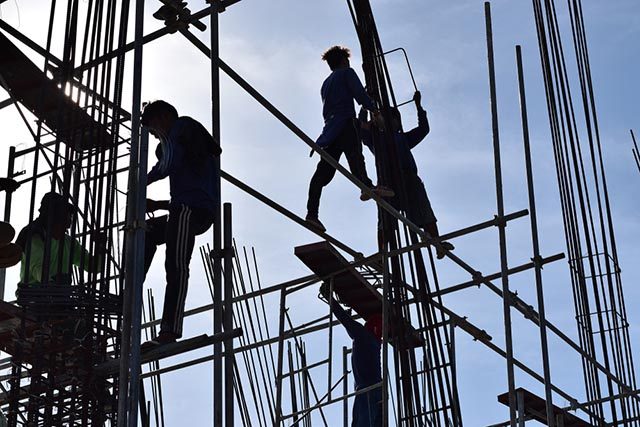SUMMARY
This is AI generated summarization, which may have errors. For context, always refer to the full article.

The Supreme Court voided a construction regulatory rule that foreign firms are only entitled to a special contractors’ license when involved in a Philippine project.
The high tribunal voted 14-1 and sided with the Manila Water Company, and also the Philippine Competition Commission (PCC), by upholding an earlier lower court ruling that declared Section 3, Rule 3, of the Implementing Rules and Regulations (IRR) of Republic Act No. 4566 is void.
This effectively means that foreign firms can have regular construction contractors licenses as Filipinos do.
“Apart from statistics, and considering the limited scope of the special license, the additional burden and expenses of securing the same scare away foreign investors. Evidently, the assailed regulation is a deterrent to the foreign players in the construction industry,” said the decision penned by Associate Justice Alexander Gesmundo, promulgated March 10, but released only on August 26.
Associate Justice Marvic Leonen dissented.
Regular vs special license
In the IRR of RA 4566 or the contractor’s license law, a regular license is “reserved for and issued only to” Filipino firms, either fully or at least 60%.
Foreign firms are entitled only to special licenses.
A regular license allows the firm to engage in construction for as long as the license is valid, while a special license only allows the firm to engage in a single specific project.
Manila Water wanted a foreign firm to work on its waterworks and sewerage system, and in the process petitioned a lower court to declare the special license rule void. On February 10, 2015, the Quezon City Regional Trial Court declared Section 3.1, Rule 3 of the IRR void.
It prompted the Philippine Contractors Accreditation Board (PCAB), which drafted the IRR, to elevate the case to the Supreme Court to reverse the lower court. The PCAB had the backing of the Office of the Solicitor General (OSG) but it lost.
The PCC was admitted as an amicus curiae (an expert resource person), and argued that the rule was “a substantial barrier to the entry of foreign contractors in the construction industry.”
The PCC said a foreign firm spends 12 times more for license applications compared to a local firm, and that as a result, data showed there were few special licenses being given, stunting the growth of an industry that can benefit from the foreign firms.
“Comparative data also shows that restrictive policies translate to lower levels of foreign direct investment (FDI),” said the PCC.
The ruling
The Supreme Court agreed with the PCC, saying that “the Court is not unaware of the economic benefits of opening the construction industry to foreigners.”
The ruling, however, was mainly constitutional.
Firstly, the Supreme Court agreed that only Congress has a lawmaking power. The text of RA 4566 or the contractor’s license law does not impose such limit on foreign firms – only the IRR did.
“Congress did not intend to discriminate against foreign contractors as there is no restriction that may be found in RA No. 4566,” said the Supreme Court.
The PCAB said that the regulation was following Section 14, Article XII of the Constitution which says “the practice of all professions in the Philippines shall be limited to Filipino citizens, save in cases prescribed by law.”
But the Supreme Court said that provision only talks about a natural person practicing a profession.
“The licensing of contractors is not to engage in the practice of a specific profession, but rather to engage in the business of contracting/construction,” the Court said.
The Supreme Court also added that “the construction industry is not one which the Constitution has reserved exclusively for Filipinos.”
The Supreme Court said that the government’s desire to regulate foreign firms can still be achieved through other rules “other than restricting the contractor’s license which leads to deprivation of economic growth and advancement of the construction industry.”
The Supreme Court suggested that foreign firms be required to put up a performance bond issued by a domestic company so it will be easy to run after them for contractual breach.
The lone dissenter, Leonen said that the consideration of whether the restriction negatively impacts the industry is not for the Court to decide but “to our lawmakers in whose hands rest determining the best policy for our economy.” – Rappler.com
Add a comment
How does this make you feel?





There are no comments yet. Add your comment to start the conversation.